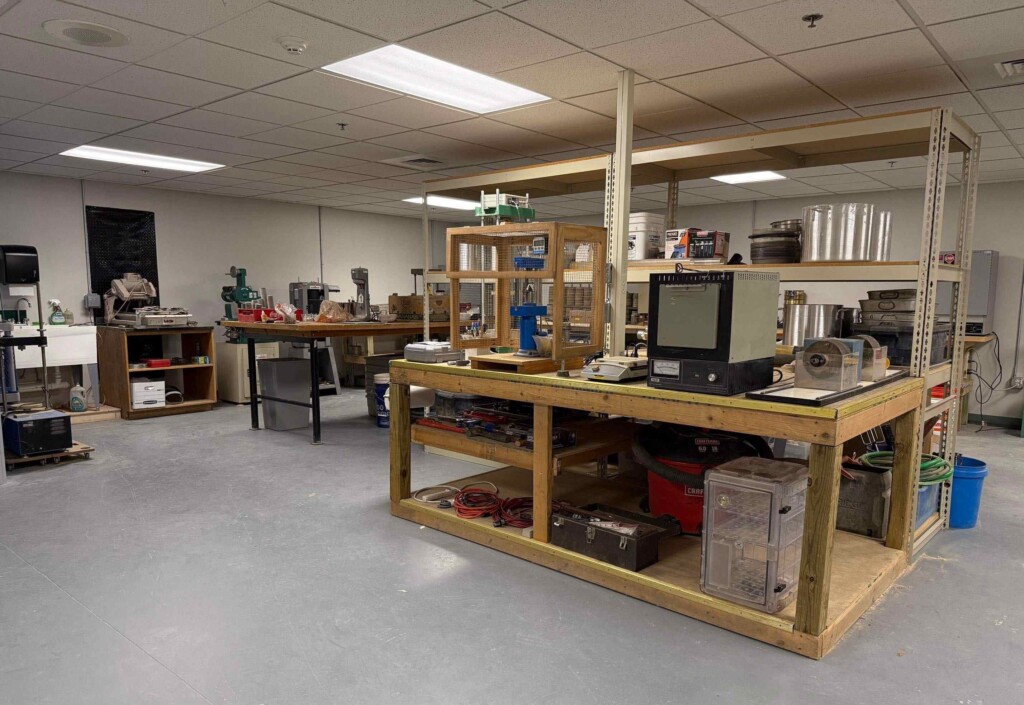Our clients count on our multi-disciplined staff and modern equipment to provide expert testing and quality control. Whether preparing a site, evaluating an existing structure or facility, or requiring ongoing testing, Navarro & Wright has the equipment, facilities and expertise you need. We provide top-quality sampling, testing and analysis to help you meet project requirements and provide recommendations for types of testing to accurately suit the specific requirements of your projects. In addition to testing performed in our Harrisburg laboratory, N&W supplies trained ACI-certified personnel for field testing to ensure that placed materials meet the project requirements.

N&W operates two AASHTO–accredited (American Association of State Highway and Transportation Officials) materials testing and concrete testing laboratories.
Our AASHTO-accredited laboratories located in Harrisburg, Pennsylvania provide numerous soils, compaction, strength, consolidation, chemical, concrete and masonry tests in accordance with applicable AASHTO standards.
Soils testing laboratory services include :
Soil Tests
- Visual Identification – ASTM D2488
- Moisture Content – ASTM D2216 and AASHTO T265
- Particle Size Analysis – ASTM D422 and AASHTO T88
- Percent Fines – ASTM D1140
- Liquid Limit – ASTM D4318 and AASHTO T89
- Plastic Limit – ASTM D4318 and AASHTO T90
- Specific Gravity – ASTM D854 and AASHTO T100
- USCS Classification of Soils – ASTM D2487
- Organic Content in Soils by Loss on Ignition – ASTM D2974 & AASTO T267
- Permeability of Soils – ASTM D5084
- Hydrometer Analysis – ASTM D7928
Rock Tests
- Point Load Index of Rock – ASTM D5731
- Splitting Tensile Strength of Rock – ASTM D3967
- Unconfined Compressive Strength of Rock Core – ASTM D7012 (Meth C) & ASTMD4543
Compaction Tests
- Standard Compaction – ASTM D698 and AASHTO T99
- Modified Compaction – ASTM E1557 and AASHTO T180
Strength Tests
- Direct Shear – ASTM D3080 and AASHTO T236
- UU Triaxial Shear – ASTM D2850 and AASHTO T296
- CU Triaxial Shear w/Pore Pressure Measurements – ASTM D4767 and AASHTO T297
- Unconfined Compressive Strength of Cohesive Soil – ASTM D2166 & AASHTO T208
- California Bearing Ratio – ASTM D1883 and AASHTO T193
Consolidation Testing
- One-Dimensional Consolidation of Soil – ASTM D2435 and AASHTO T216
- One-Dimensional Swell or Settlement of Soil – ASTM D4546
Chemical Tests (Soils)
- pH of Soils – ASTM 4972 and AASHTO T289
- Minimum Resistivity – ASTM G187 and AASHTO T288
- Sulfate Content – AASHTO T291, CalDOT 417
- Chloride Content – AASHTO T290, CalDOT 422
Chemical Tests (Water)
- pH – ASTM D1293
- Resitivity /Conductivity – ASTM D1125
- Sulfate Content – ASTM D1125
- Chloride Content – ASTM D512
Concrete testing laboratory services include :
Concrete Tests
- Unconfined Compressive Strength of 6” dia. Concrete Cylinders – in accordance with ASTM C39
- Laboratory Beam Flexural Strength (ASTM C78)
- C31
- C138
- C143
- C172
- C173
- C231
- C293
- C511
- C617 (7000 psi and below)
- C1064
- C1231 (7000 psi and below)
- C1077
- E329
Masonry Tests
- C511 (Moist cabinets, Moist Rooms, and Water storage tanks used in the testing of Hydraulic Cements and Concretes)
- C1019 (Sampling and testing grout)
